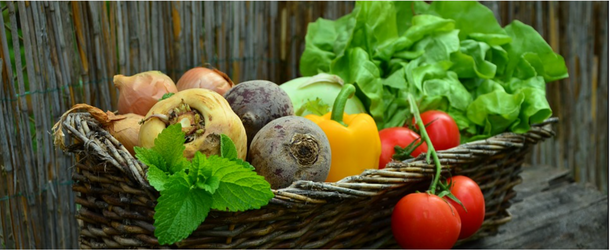Partridge Silkie Chicken: Exploring This Popular
Posted by Kylie on 31st Dec 2021
Table Of Contents
- Partridge Silkie Chicken: Exploring this Popular Colour
- What is seaweed?
- Support Questions
- Seaweed Products - Wakame, Nori and Dulse at Buy Organics Online
- Seaweed Benefits
- Wakame Seaweed
- Is Kelp and wakame the same?
- Where is Wakame Seaweeds from?
- Is Wakame Seaweed good for you?
Edible seaweed is known as the vegetable of the sea. It is a valuable source of food for most marine life and has been a reliable source of food for various human cultures for centuries.. Seaweed packs a huge nutritional punch as it has the ability to absorb concentrated amounts of iodine from the ocean. Iodine is essential for the human thyroid gland to function properly and as it can’t be produced by the body, must be sourced through food sources. As well as being a wonderful source of iodine, the vegetable of the sea contains many micronutrients including folate, magnesium, calcium, iron, zinc, and selenium.
Edible seaweed in Australia is only now starting to be recognised for its dense nutrient and low calorie properties, although it has been harvested and consumed in Asian countries for many years. This is particularly so in Japan and Korea. Edible seaweed is a staple in many well known Japanese dishes, Dishes that have now entered awareness in Western countries include such dishes as miso soup and various sushi dishes. The obvious popularity in Japan has led to the various seaweed types being commonly referred to by their Japanese names. Hence, Wakame. Nori and Dulse are largely recognised around the world.
What is seaweed?
Seaweed is a catch all common term that is used to describe numerous species of marine plants and algae that grow in oceans and waterways.
Support Questions
Lorem ipsum...
Lorem ipsum...
Lorem ipsum...
Lorem ipsum...

Edible seaweed is known as the vegetable of the sea. It is a valuable source of food for most marine life and has been a reliable source of food for various human cultures for centuries.. Seaweed packs a huge nutritional punch as it has the ability to absorb concentrated amounts of iodine from the ocean. Iodine is essential for the human thyroid gland to function properly and as it can’t be produced by the body, must be sourced through food sources. As well as being a wonderful source of iodine, the vegetable of the sea contains many micronutrients including folate, magnesium, calcium, iron, zinc, and selenium.
Edible seaweed in Australia is only now starting to be recognised for its dense nutrient and low calorie properties, although it has been harvested and consumed in Asian countries for many years. This is particularly so in Japan and Korea. Edible seaweed is a staple in many well known Japanese dishes, Dishes that have now entered awareness in Western countries include such dishes as miso soup and various sushi dishes. The obvious popularity in Japan has led to the various seaweed types being commonly referred to by their Japanese names. Hence, Wakame. Nori and Dulse are largely recognized around the world.
Seaweed Products - Wakame, Nori and Dulse at Buy Organics Online
Seaweeds products or algae products are some of the most beneficial and well-known vegan products in the market. There are many different types of seaweeds including wakame, nori and dulse that provide numerous heath benefits to your body
Seaweed Benefits
Wakame Seaweed
wakame is a brown algae that is mostly consumed in miso soups. It is Popular is salads and eaten raw. It is well know for its health benefits. Including being rich in minerals and vitamins. Purchase dried wakame ans soak it in water for 10 minutes before preparing it in the famous wakame salad. this will give it the glossy texture that we all love.
Is Kelp and wakame the same?
Both Kelp and wakame ae types of algae and are classed as marine vegetables. Wakame seaweeds cab be grown in fresh and saltwater and tastes a little like bacon. Kelp on the other hand grows only in saltwater and required the movement of water to get it nutrients.
Where is Wakame Seaweeds from?
Wakame seaweed is also called Japanese seaweed, which indicates where the seaweeds originated. There are known large beds of the seaweed in Victoria and Tasmania.
Is Wakame Seaweed good for you?
Wakame seaweed has a low calorie content and has a rich nutrients content. Some of the most beneficial elements within wakame include, magnesium, calcium and manganese.

